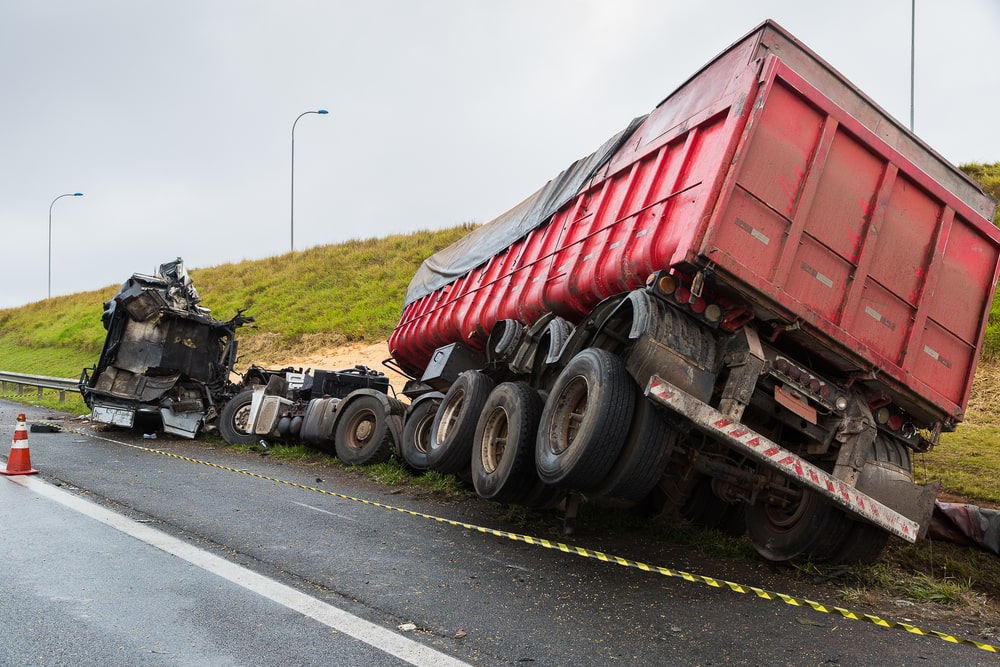Truck accidents can be devastating for everyone involved. Due to their size and weight, trucks can cause severe injuries and significant property damage in a collision. As truck accident lawyers, we’ve seen firsthand how these crashes impact lives, leaving victims with medical bills, lost wages, and long-term recovery needs. For those affected, understanding the root causes of truck accidents and what’s necessary to establish liability is crucial when seeking compensation.
Our friends at the Law Offices of David A. DiBrigida share their experiences that highlight the importance of gathering thorough evidence early on. By identifying key causes and proving fault, victims are better positioned to receive fair compensation for their injuries and losses.
Driver Fatigue
Fatigue is a leading cause of truck accidents. Truck drivers often face tight deadlines, which pressure them into working long hours without sufficient rest. Although federal regulations limit driving hours through hours-of-service rules, some drivers push past these limits or falsify logs to meet delivery schedules. For example, if a driver has been on the road for 18 hours straight, their reaction time will be significantly slower, increasing the risk of an accident.
To prove fatigue was a contributing factor, truck accident lawyers often look at logbooks, electronic logging devices (ELDs), and fuel or toll receipts to identify inconsistencies. Witness statements, such as testimony from other drivers or truck stop employees, can also help demonstrate a lack of rest.
Improper Maintenance
Commercial trucks must undergo regular inspections and maintenance to remain roadworthy. Faulty brakes, tire blowouts, and steering issues can quickly lead to accidents if trucks are not properly maintained. For instance, we’ve seen cases where worn-out brakes caused a truck to rear-end a smaller vehicle because it couldn’t stop in time.
Liability in these cases may fall on the trucking company or maintenance provider. Attorneys will often review maintenance records, inspection logs, and repair reports to determine whether negligence played a role. Photos of truck parts, expert analysis, and crash reconstruction may also support a claim.
Distracted Driving
Distracted driving isn’t just a problem for passenger vehicles—truck drivers are equally susceptible to distractions like cell phone use, GPS devices, or even eating behind the wheel. A momentary lapse in attention can have catastrophic consequences, particularly when driving an 80,000-pound vehicle.
Evidence like phone records, onboard cameras, and witness statements often reveal if distraction caused an accident. For instance, a trucker’s phone activity could show they were texting when the crash occurred, making it easier to prove negligence.
Speeding And Reckless Driving
Speeding is another frequent cause of truck accidents. Because trucks require longer stopping distances than smaller vehicles, speeding reduces a driver’s ability to stop in time when traffic changes suddenly. Reckless behaviors like unsafe lane changes or tailgating also create serious risks.
Proving liability often involves analyzing data from the truck’s black box, which records speed and braking activity. Traffic camera footage, skid marks, and witness statements further strengthen the case against a reckless driver.
Unsecured Or Overloaded Cargo
Improperly loaded or unsecured cargo can shift during transit, throwing off a truck’s balance and causing rollovers or jackknife accidents. In some cases, cargo may fall onto the road, creating hazards for other drivers. For example, we’ve seen situations where overloaded trailers led to brake failure, contributing to severe crashes.
To prove liability, attorneys will examine cargo-loading records, weigh station reports, and federal guidelines to identify any violations. Photos of the cargo after the accident and truck inspection reports often provide additional evidence.
How Liability Is Established
In any truck accident case, determining liability comes down to proving negligence. This involves demonstrating that the truck driver, trucking company, or another party failed to act responsibly, causing the accident. Evidence like police reports, black box data, maintenance logs, and witness statements are all critical in building a strong case. Sometimes, multiple parties may share fault—for example, a driver’s fatigue combined with a company’s failure to enforce rest breaks.
If you or someone you love has been injured in a truck accident, you don’t have to face the aftermath alone. Seeking guidance from a trusted truck accident lawyer can make a significant difference in holding the responsible parties accountable and recovering the compensation you deserve. Contact us today for a free consultation and let us help you take the first steps toward putting your life back together.





